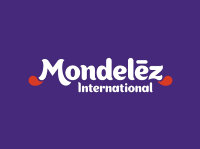
Fleury Michon SA
PAR:ALFLE

Profitability Summary
Fleury Michon SA's profitability score is hidden . We take all the information about a company's profitability (such as its margins, capital efficiency, free cash flow generating ability, and more) and consolidate it into one single number - the profitability score. The higher the profitability score, the more profitable the company is.
Profitability Score
We take all the information about a company's profitability (such as its margins, capital efficiency, free cash flow generating ability, and more) and consolidate it into one single number - the profitability score. The higher the profitability score, the more profitable the company is.
We take all the information about a company's profitability (such as its margins, capital efficiency, free cash flow generating ability, and more) and consolidate it into one single number - the profitability score. The higher the profitability score, the more profitable the company is.
Profitability Score
Margins
Earnings Waterfall
Fleury Michon SA

Margins Comparison
Fleury Michon SA Competitors

| Country | Company | Market Cap |
Gross Margin |
Operating Margin |
Net Margin |
||
|---|---|---|---|---|---|---|---|
| FR |

|
Fleury Michon SA
PAR:ALFLE
|
102.8m EUR |
Loading...
|
Loading...
|
Loading...
|
|
| JP |
G
|
Goyo Foods Industry Co Ltd
TSE:2230
|
53.2T JPY |
Loading...
|
Loading...
|
Loading...
|
|
| CH |

|
Nestle SA
SIX:NESN
|
200B CHF |
Loading...
|
Loading...
|
Loading...
|
|
| US |

|
Mondelez International Inc
NASDAQ:MDLZ
|
80.1B USD |
Loading...
|
Loading...
|
Loading...
|
|
| ZA |
T
|
Tiger Brands Ltd
JSE:TBS
|
56.8B ZAR |
Loading...
|
Loading...
|
Loading...
|
|
| FR |

|
Danone SA
PAR:BN
|
46.5B EUR |
Loading...
|
Loading...
|
Loading...
|
|
| US |

|
Hershey Co
NYSE:HSY
|
44.9B USD |
Loading...
|
Loading...
|
Loading...
|
|
| ZA |
A
|
Avi Ltd
JSE:AVI
|
37.2B ZAR |
Loading...
|
Loading...
|
Loading...
|
|
| CH |

|
Chocoladefabriken Lindt & Spruengli AG
SIX:LISN
|
28.4B CHF |
Loading...
|
Loading...
|
Loading...
|
|
| CN |

|
Muyuan Foods Co Ltd
SZSE:002714
|
247.7B CNY |
Loading...
|
Loading...
|
Loading...
|
|
| CN |

|
Foshan Haitian Flavouring and Food Co Ltd
SSE:603288
|
208.6B CNY |
Loading...
|
Loading...
|
Loading...
|
Return on Capital
Return on Capital Comparison
Fleury Michon SA Competitors

| Country | Company | Market Cap | ROE | ROA | ROCE | ROIC | ||
|---|---|---|---|---|---|---|---|---|
| FR |

|
Fleury Michon SA
PAR:ALFLE
|
102.8m EUR |
Loading...
|
Loading...
|
Loading...
|
Loading...
|
|
| JP |
G
|
Goyo Foods Industry Co Ltd
TSE:2230
|
53.2T JPY |
Loading...
|
Loading...
|
Loading...
|
Loading...
|
|
| CH |

|
Nestle SA
SIX:NESN
|
200B CHF |
Loading...
|
Loading...
|
Loading...
|
Loading...
|
|
| US |

|
Mondelez International Inc
NASDAQ:MDLZ
|
80.1B USD |
Loading...
|
Loading...
|
Loading...
|
Loading...
|
|
| ZA |
T
|
Tiger Brands Ltd
JSE:TBS
|
56.8B ZAR |
Loading...
|
Loading...
|
Loading...
|
Loading...
|
|
| FR |

|
Danone SA
PAR:BN
|
46.5B EUR |
Loading...
|
Loading...
|
Loading...
|
Loading...
|
|
| US |

|
Hershey Co
NYSE:HSY
|
44.9B USD |
Loading...
|
Loading...
|
Loading...
|
Loading...
|
|
| ZA |
A
|
Avi Ltd
JSE:AVI
|
37.2B ZAR |
Loading...
|
Loading...
|
Loading...
|
Loading...
|
|
| CH |

|
Chocoladefabriken Lindt & Spruengli AG
SIX:LISN
|
28.4B CHF |
Loading...
|
Loading...
|
Loading...
|
Loading...
|
|
| CN |

|
Muyuan Foods Co Ltd
SZSE:002714
|
247.7B CNY |
Loading...
|
Loading...
|
Loading...
|
Loading...
|
|
| CN |

|
Foshan Haitian Flavouring and Food Co Ltd
SSE:603288
|
208.6B CNY |
Loading...
|
Loading...
|
Loading...
|
Loading...
|

